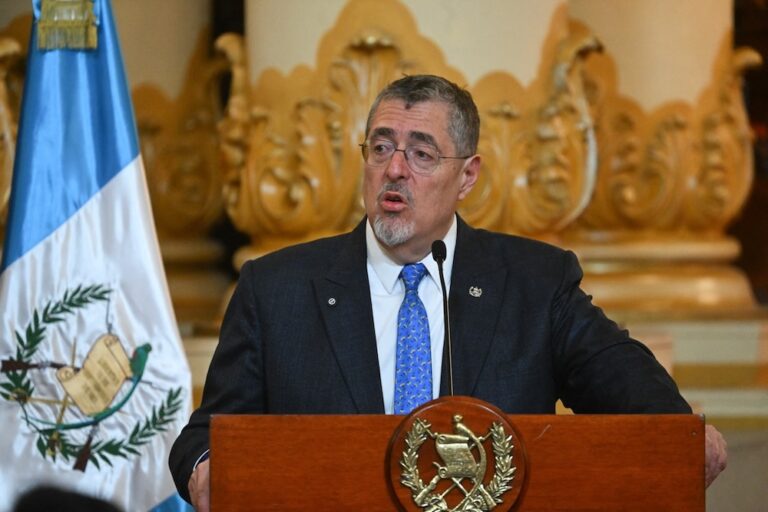(CERIGUA/IFEX) – On 23 July 2004, the Guatemalan Community Communications Council (Consejo Guatemalteco de Comunicación Comunitaria, CGCC) lodged a complaint about discriminatory practices regarding access to radio frequencies, the government’s failure to implement the Agreement on Identity and Rights of Indigenous Peoples (Acuerdo sobre Identidad y Derechos de los Pueblos Indígenas) and raids on community […]
(CERIGUA/IFEX) – On 23 July 2004, the Guatemalan Community Communications Council (Consejo Guatemalteco de Comunicación Comunitaria, CGCC) lodged a complaint about discriminatory practices regarding access to radio frequencies, the government’s failure to implement the Agreement on Identity and Rights of Indigenous Peoples (Acuerdo sobre Identidad y Derechos de los Pueblos Indígenas) and raids on community radio stations.
According to the CGCC, community radio stations have recently been the target of a series of attacks, including accusations that they are broadcasting illegally and other discriminatory comments. Such attacks violate the right to freedom of expression guaranteed in Article 35 of the Constitution, the Law on Expression of Opinion and international agreements.
In recent months, community radio stations have been raided and their broadcasting equipment has been confiscated by the Public Prosecutor’s Office. In addition, Public Prosecutor’s Office officials have intimidated station operators and commentators, as well as the community radio stations’ legal representatives who have submitted appeals on behalf of the stations.
According to a complaint lodged by the CGCC, which was sent to the Organization of American States’ special rapporteur for freedom of expression, Eduardo Bertoni, the state sells and auctions radio frequencies, even though these frequencies belong to Guatemalan society as a whole. The CGCC stated that radio stations fulfil a crucial role in community development.
In its complaint, the CGCC asked the Guatemalan Congress to pass a law and amend existing laws in order to ensure that community radio stations are legally recognised. The organisation urged authorities to end the harassment of stations operating in Guatemalan communities.
The organisations that form the CGCC also asked Bertoni to intervene before the Telecommunications Superintendency (Superintendencia de Telecomunicaciones) and other government entities, calling for the auction of radio frequencies to be suspended until a law on the status of community radio stations has been passed.
The radio stations are supported by Guatemala’s Mayan, Garífuna, Xinca and Ladino populations and they operate according to guarantees provided in Article 35 of the Constitution, the Law on Expression of Opinion, the Agreement on Identity and Rights of Indigenous Peoples and international agreements to which Guatemala is a signatory.


